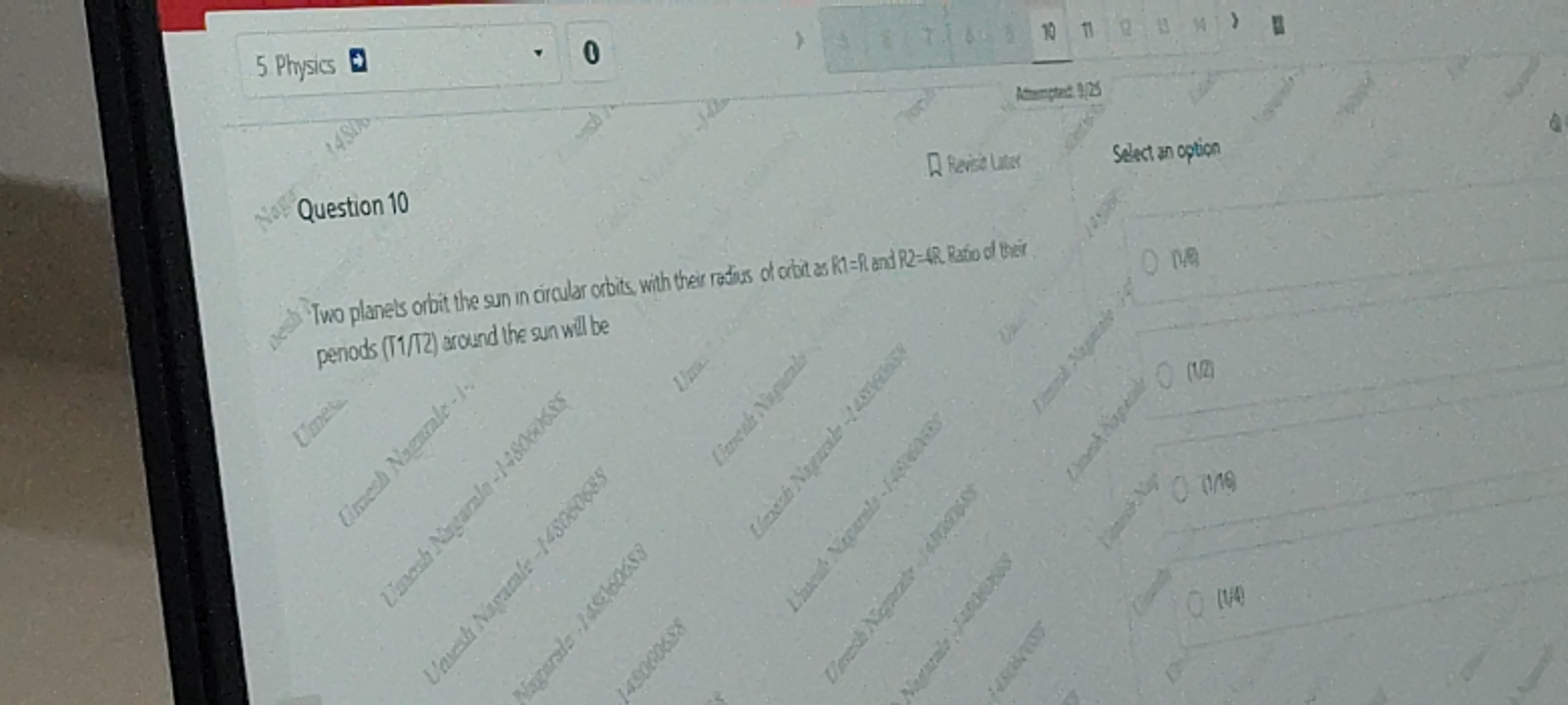Question
Question: Two planets orbit the sun in circular orbits, with their radius of orbit as R1=R and R2=4R. Ratio of...
Two planets orbit the sun in circular orbits, with their radius of orbit as R1=R and R2=4R. Ratio of their periods (T1/T2) around the sun will be

1/8
1/2
1/16
1/4
1/8
Solution
The problem involves two planets orbiting the Sun in circular orbits. We are given the radii of their orbits and asked to find the ratio of their periods. This can be solved using Kepler's Third Law of Planetary Motion.
Kepler's Third Law:
Kepler's Third Law states that the square of the orbital period (T) of a planet is directly proportional to the cube of the semi-major axis (a) of its orbit. For a circular orbit, the semi-major axis is equal to the radius (R) of the orbit.
Mathematically, this can be expressed as:
T2∝R3
Or, T2=kR3, where k is a constant that depends on the mass of the central body (the Sun in this case).
Applying the Law to the Given Planets:
Let T1 and T2 be the periods of the two planets, and R1 and R2 be their respective orbital radii.
Given:
R1=R R2=4R
For the first planet:
T12=kR13 T12=k(R)3 T12=kR3(1)
For the second planet:
T22=kR23 T22=k(4R)3 T22=k(64R3)(2)
Finding the Ratio of Periods (T1/T2):
To find the ratio T1/T2, we divide equation (1) by equation (2):
T22T12=k(64R3)kR3
The constant 'k' and R3 cancel out:
T22T12=641
Now, take the square root of both sides to find the ratio T1/T2:
T22T12=641
T2T1=81
The ratio of their periods (T1/T2) is 1/8.
